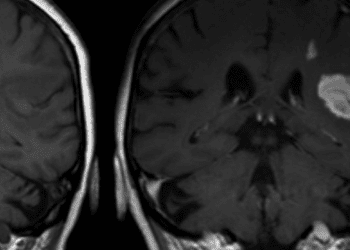Delayed growth seen in children with congenital heart disease
[tabs tab1=”2MM Rundown” tab2= “Full 2MM Report” tab3=”About the Authors”]
[tab]
Image: PD
1. Children born with varying degrees of congenital heart disease experience early growth delays up to at least 36 months of age.
2. Weight, length, and head circumference were all equally stunted.
Children with CHD have statistically significant, sustained delays in growth up to 36 months when compared with their peers. Importantly, growth delay is seen in height, weight and head circumference in parallel, suggesting that these outcomes reflect an underlying interruption in growth regulation in these children. This study does not clearly elucidate the underlying mechanisms of this growth delay, however, and further evaluation is needed to determine potential areas for intervention.
Click to read the study in Pediatrics
[/tab]
[tab]
Image: PD
1. Children born with varying degrees of congenital heart disease experience early growth delays up to at least 36 months of age.
2. Weight, length, and head circumference were all equally stunted.
Primer: The prevalence of congenital heart disease (CHD) is estimated to be between 6 and 13 per 1000 live births in the United States. Children with CHD have been observed to have delayed growth in infancy; however, these observations are yet to be well characterized in the literature. It is also unclear whether it is the severity of the underlying CHD, increased caloric needs, and/or associated genetic disease that underlies these observations. This study attempts to elucidate the timing of growth delays among children with CHD of varying severity in order to both better elucidate the underlying etiology of this delay as well as to design timely interventions to modify these delays.
Background reading:
1. UpToDate: Congenital heart disease in the newborn
This [retrospective cohort] study: identified children in the mid-Atlantic who were born with CHD between 2001 and 2009, as well as age-matched controls. Children born prematurely, or with concurrent non-cardiac conditions were excluded. Children were separated into four categories of CHD: single ventricle physiology, two-ventricle heart disease requiring complex disease, two-ventricle heart disease requiring simple repair, and two-ventricle heart disease not requiring repair. Growth measurements from 1 week up to 36 months of life were obtained from outpatient pediatric records.
The study found that within 4 weeks of birth, all children with CHD were born with statistically significantly deficits in weights, length and head circumference. These deficits were most significant at 4 months of age, but persisted to 36 months of age. Importantly, these deficits were seen in infants with all degrees of CHD severity, including those not requiring repair.
In sum: Children with CHD have statistically significant, sustained delays in growth up to 36 months when compared with their peers. Importantly, growth delay is seen in height, weight and head circumference in parallel, suggesting that these outcomes reflect an underlying interruption in growth regulation in these children. This study does not clearly elucidate the underlying mechanisms of this growth delay, however, and further evaluation is needed to determine potential areas for intervention.
Click to read the study in Pediatrics
By [EH] and [DB]
© 2012 2minutemedicine.com. All rights reserved. No works may be reproduced without written consent from 2minutemedicine.com. Disclaimer: We present factual information directly from peer reviewed medical journals. No post should be construed as medical advice and is not intended as such by the authors or by 2minutemedicine.com. PLEASE SEE A HEALTHCARE PROVIDER IN YOUR AREA IF YOU SEEK MEDICAL ADVICE OF ANY SORT.
[/tab]
[tab]
 Emilia Hermann: Emilia is a 3rd year MD candidate at the University of Pennsylvania. She grew up in Atlanta, Georgia and graduated from the University of Pennsylvania in 2009 with a degree in Anthropology. Her medical interests include pediatrics, infectious disease, and global health. She loves to travel and, when not studying or running around the hospital, can be found planning her next big adventure.
Emilia Hermann: Emilia is a 3rd year MD candidate at the University of Pennsylvania. She grew up in Atlanta, Georgia and graduated from the University of Pennsylvania in 2009 with a degree in Anthropology. Her medical interests include pediatrics, infectious disease, and global health. She loves to travel and, when not studying or running around the hospital, can be found planning her next big adventure.
 Devika Bhushan: Devika is a 4th year M.D. candidate at Harvard Medical School. She has grown up between India, the United States, and the Philippines. She attended Columbia University as an undergraduate, majoring in Neuroscience and Behavior. During medical school, she has discovered a passion for pediatric neurology, and is also interested in behavioral health and social determinants. She is responsible for overseeing content in general pediatrics and in pediatric neurology.
Devika Bhushan: Devika is a 4th year M.D. candidate at Harvard Medical School. She has grown up between India, the United States, and the Philippines. She attended Columbia University as an undergraduate, majoring in Neuroscience and Behavior. During medical school, she has discovered a passion for pediatric neurology, and is also interested in behavioral health and social determinants. She is responsible for overseeing content in general pediatrics and in pediatric neurology.
[/tab]




